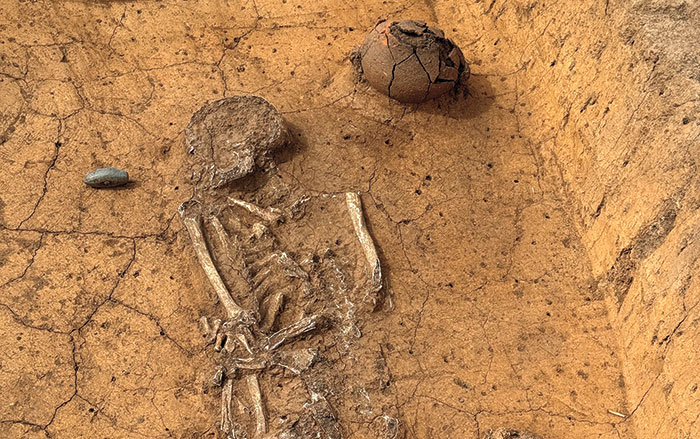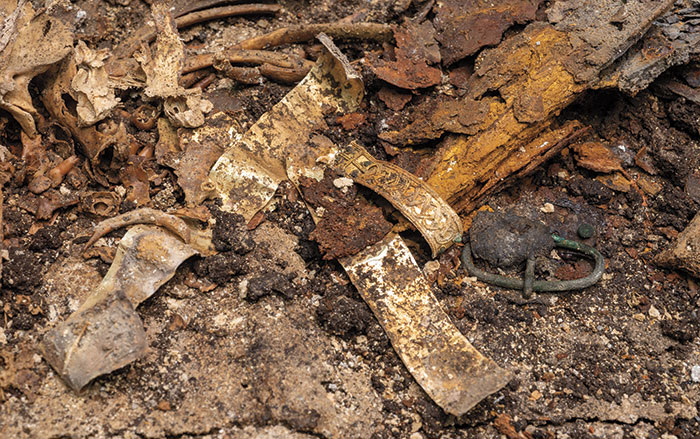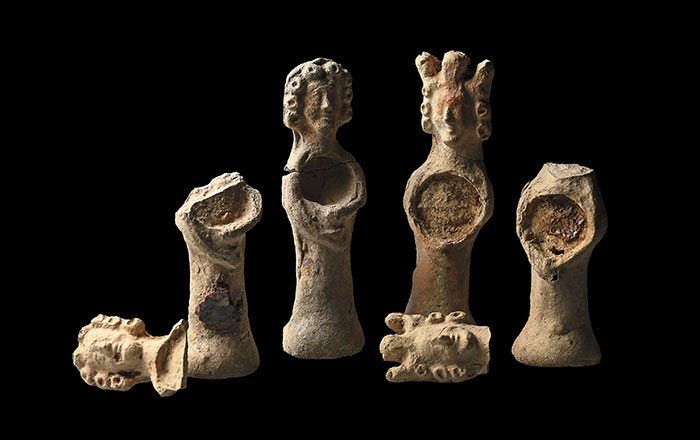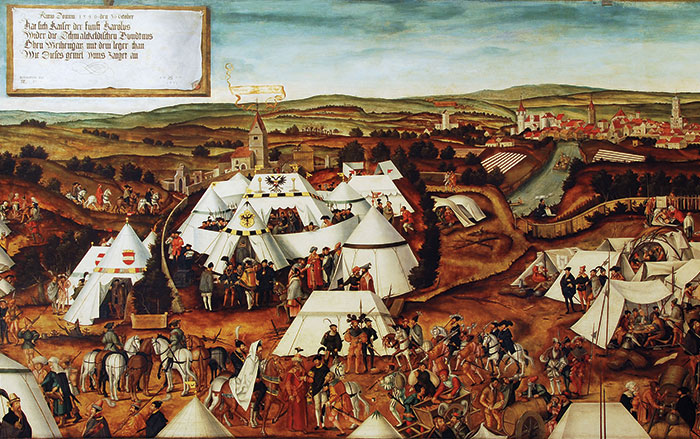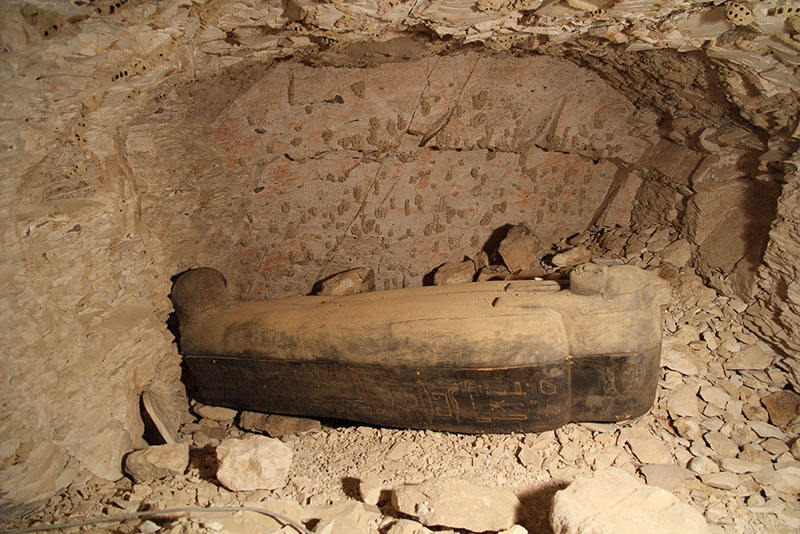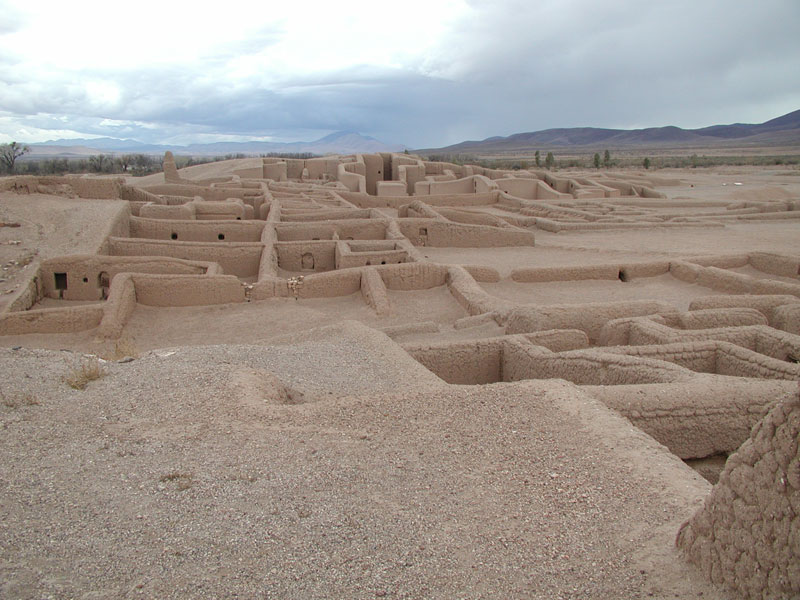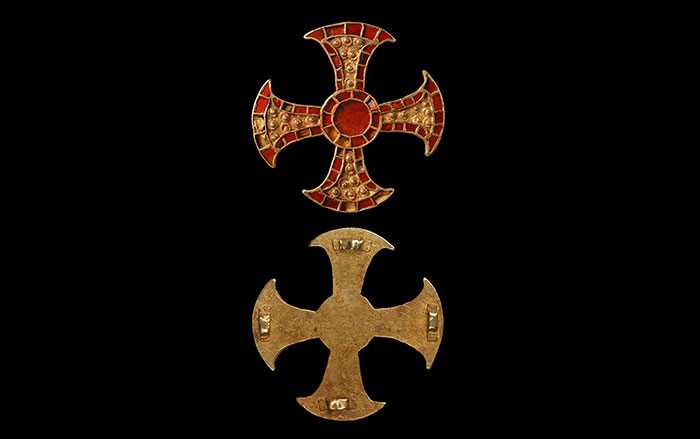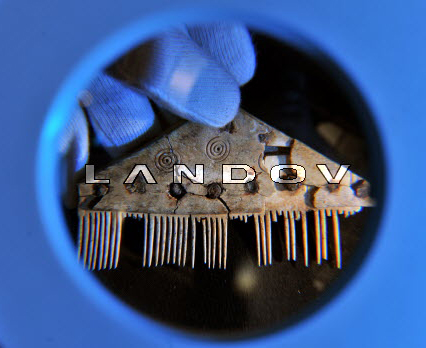
Runes scratched onto a decorated comb are the oldest evidence of written West Germanic, the language that gave birth to English, German, Dutch, and a variety of other modern tongues. Discovered near the eastern German town of Frienstedt during a highway construction project at least a decade ago, the deer-antler comb is more than 1,700 years old. It was found together with animal skulls, gold rings, brooches, and Roman coins, and was probably part of an offering or sacrifice. The runes, an alphabet used before the Latin alphabet became wide- spread, were only noticed when conservators finally pieced together the comb's fragments this year. The letters spell out "KABA," which would have been pronounced "kamba," the Germanic word for "comb." A lab in Copenhagen is studying the antler to see if it's possible to determine where the deer lived and where the ancient comb was made.


